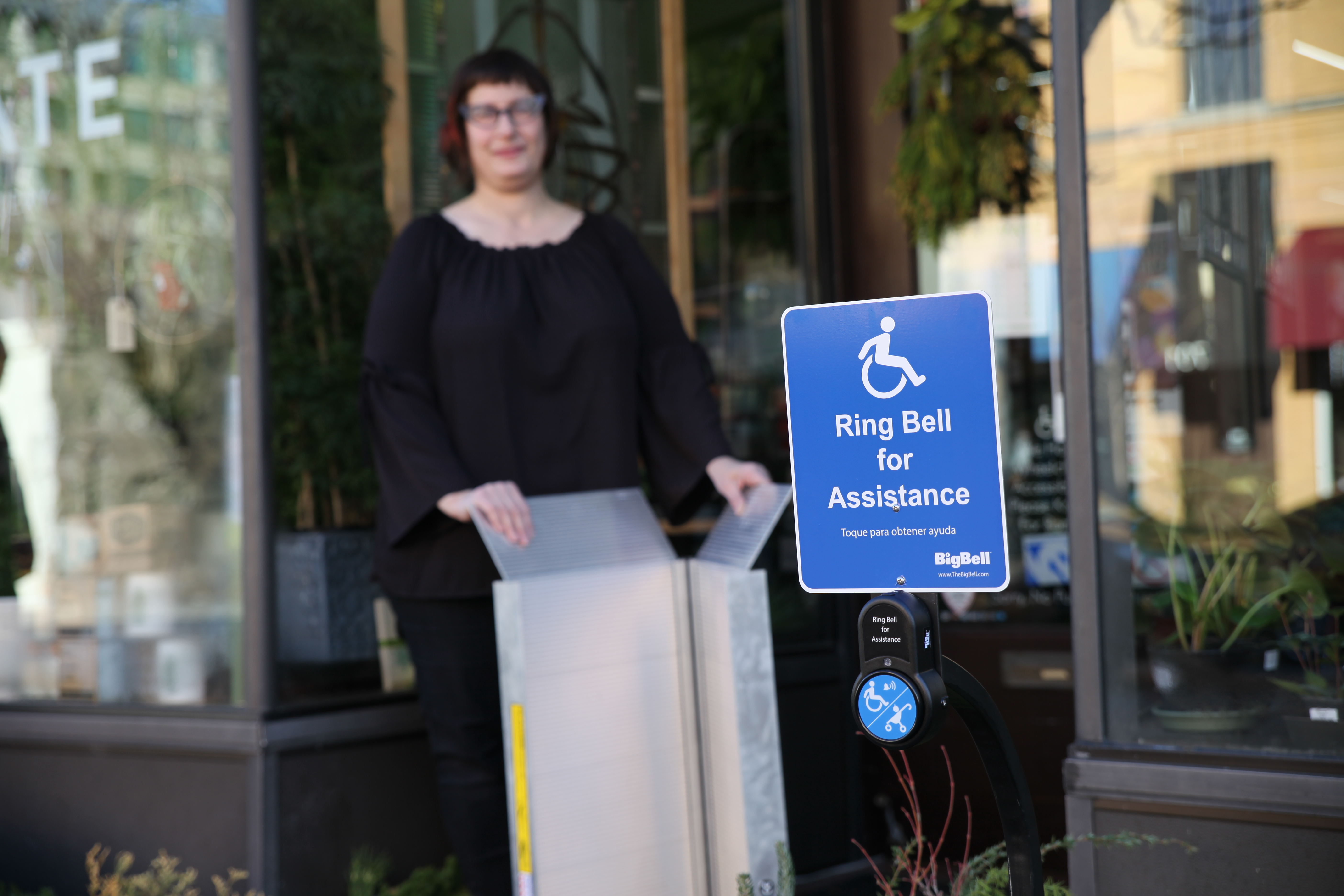Confession #1:
I love shopping local. It’s one of my favorite things to do whether I’m at home or traveling. I look forward to seeing where the locals meet for coffee and discovering local authors. I pride myself on picking up where-did-you-find-that jewelry and purchasing unique toys that spark the imagination. And the holiday season never fails to yield gift-giving treasures galore: ornaments that celebrate the local community, beverages from local distilleries, confections, clothing, leather goods, home décor and one-of-a-kind antiques… I’m out of breath already!
Confession #2:
Prior to helping the team here, I really only considered how my shopping local habit benefited the community (and me, of course). I knew I was supporting my neighbors, increasing property values, and supporting local schools, police, and fire departments. But the bloom is off the rose a tiny bit… because working for Inclusion Solutions has made me acutely aware this holiday season of how many shoppers with disabilities, or even strollers, are unable to access the local stores I frequent.
The “grinchy” reality is that nine times out of ten, I notice there’s a step or two that bars entrance into a cute boutique or eatery for someone in a wheelchair. Rarely do I see a ramp. And when I look for a doorbell or a way for these individuals to signal to the staff inside that assistance is necessary, I’m unable to locate a viable option.
Maybe it’s the holiday season, but I can’t bring myself to think these small business owners are blatantly discriminating against these shoppers. It would be foolhardy to do so, since:
- It’s against the law, and
- They wield $175 billion in discretionary spending power and 75% report they eat out at least once a week.
Instead, I’m choosing to believe these small business owners simply don’t realize how easy it is to accommodate this population of people, and on their holiday wish list is a low-tech, high-touch solution to solve this problem.
Here Comes Santa Claus!
Also known as Inclusion Solutions. Their first priority is accessibility, and therefore they overcome barriers such as oddly sized storefront entrances and budget constraints to create accessibility in any environment – restaurant or retail, bakery or boutique. Their product portfolio is the result of extensive experience helping small business owners improve accessibility for all customers, and at the core of the portfolio is a strong commitment to quality and ADA standards.
Their flagship product is the BigBell. And no, I didn’t make that name up just because it’s the holidays! The BigBell is a wireless doorbell alert that enables small businesses to easily comply with ADA requirements where building access is an issue. The BigBell is particularly well suited to some of my favorite shop local destinations: older, urban streetscapes that attract a significant amount of foot traffic such as New York’s SoHo, Chicago’s Lincoln Park, Savannah, and even my home town of Evanston.
And the way it works is simple.

The BigBell is set at the appropriate height for wheelchair access and features both the international symbol for wheelchair accessibility as well as directional signage.When a customer approaches the business, he or she will see the BigBell outside of the entrance and know assistance is available. Pressing the BigBell touchpad will trigger an interior chime and an employee can then assist the customer as necessary.
While the BigBell is relatively inexpensive (especially compared to the cost of renovation or installing a power door!), small business owners can offset the BigBell’s price tag with a tax incentive. Yep, you read that right. The federal government actually provides tax incentives to small business owners who create a more accessible environment. According to the ADA Guide for Small Businesses, businesses that have $1,000,000 or less in total revenue in the previous tax year or 30 or fewer full-time employees can receive a tax credit for money spent on equipment, materials, and labor leading to increased building access. This credit can cover 50% of the eligible access expenditures in a year up to $10,250 (maximum credit of $5,000).
So happy holidays!
I’ve just gifted small business owners with something they should want and need: a low tech, high touch solution for creating an accessible retail or restaurant environment for all shoppers. And in the spirit of shop local:
- Can it be personalized? Yes!
- Can you buy it through big box retail? No!
- Will you help build a community? Yes!
- Will you receive better service? Yes!
- Will you benefit from increased expertise? Yes!
- Will you make a personal connection? Yes!
To learn more about how the BigBell can help small business owners create accessible storefronts, download the case study: Freshii: A Fresh Approach to Restaurant Access.